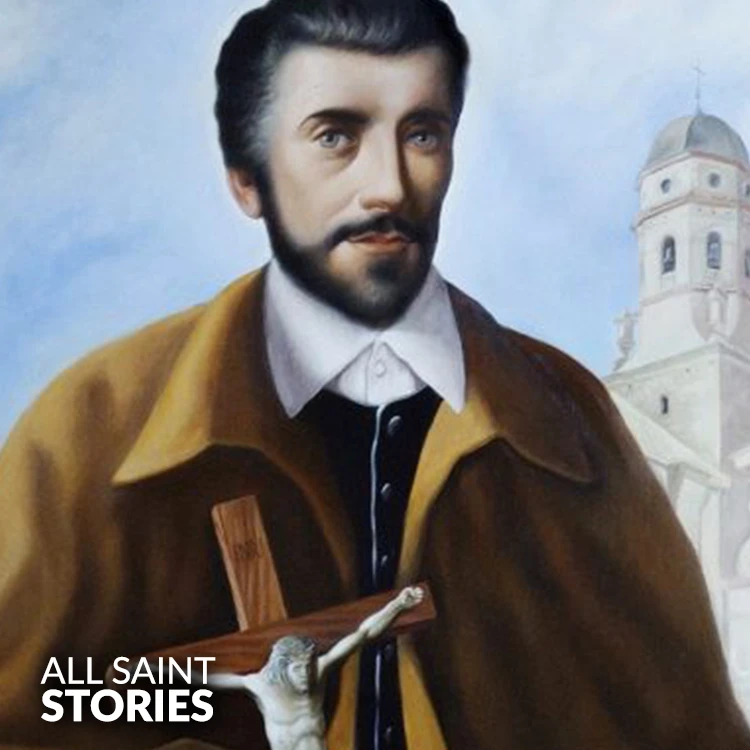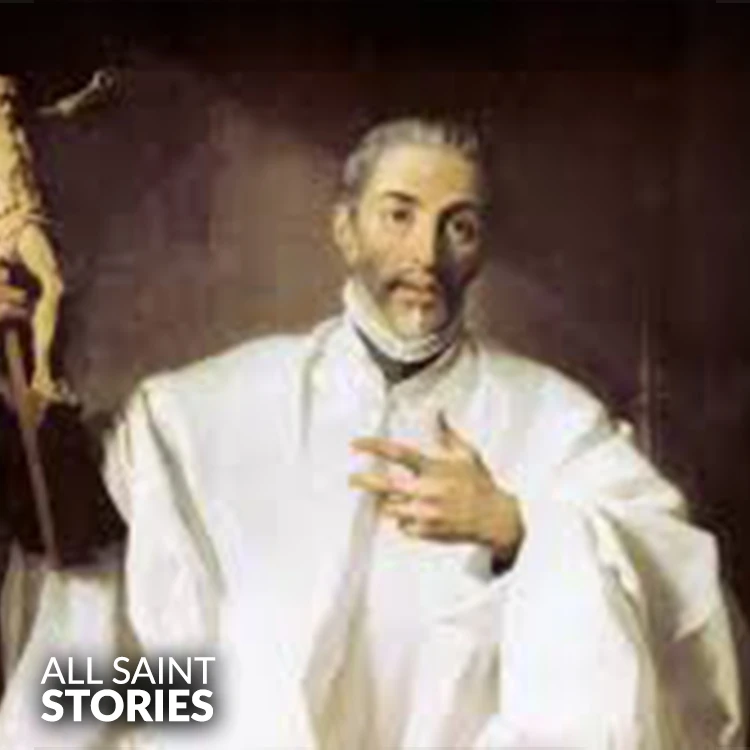"O God, through the intercession of St. John of Avila, may we grow in holiness and deepen our love for Your Church. Grant us a spirit of prayer, penance, and service to one another, that we may follow in his footsteps of faith and love. Through Christ our Lord. Amen."
ST. JOHN OF AVILA
ST. JOHN OF AVILA

St. John of Avila was a Spanish priest, mystic, and theologian, known for his influential writings and spiritual guidance. A key figure in the Counter-Reformation, he dedicated his life to reforming the clergy and promoting personal holiness. His works inspired many, including St. Teresa of Ávila and St. John of the Cross, and his teachings on prayer, penance, and the Eucharist continue to influence Catholic spirituality today.
St. John of Avila was born on January 6, 1500, in Almodóvar del Campo, Spain. He was educated at the University of Alcalá and the University of Salamanca, where he developed a deep understanding of theology. After his ordination as a priest, he became known for his passionate preaching and commitment to the reform of the Church. St. John of Avila's ministry was centered around promoting personal holiness, emphasizing the importance of prayer and penance. He was particularly dedicated to reforming the clergy and the spiritual lives of Christians, believing that true renewal came from within the individual.
One of his most influential works was Audi, Filia (Listen, My Daughter), a treatise on the spiritual life that draws comparisons to The Imitation of Christ by Thomas à Kempis. His writings offer profound insights into the interior life, focusing on themes like humility, love of God, and the importance of the Eucharist. St. John of Avila also composed letters and sermons that resonated with people across Spain and beyond, reinforcing his place as a central figure in the Spanish Church during the 16th century.
His mystical spirituality was deeply rooted in his love for the Eucharist and the belief that the heart of the Christian life is a personal relationship with God. He had a strong influence on the development of Spanish mysticism, inspiring figures such as St. Teresa of Ávila and St. John of the Cross, both of whom admired his teachings. St. John of Avila was also known for his ascetic lifestyle, which included a commitment to fasting, prayer, and solitude, allowing him to grow in spiritual union with God.
During his life, he was actively involved in the Catholic Reformation, a movement that sought to reform and revitalize the Church in response to the Protestant Reformation. His efforts were directed towards the reform of both the clergy and the laity, with a focus on moral integrity and deeper devotion to Christ. His impact was not only theological but also pastoral, as he guided many individuals and communities toward greater holiness.
St. John of Avila was beatified by Pope Leo XIII in 1894 and was canonized by Pope Paul VI on January 31, 1970. He was later declared a Doctor of the Church by Pope Benedict XVI in 2012, a testament to the enduring value of his theological writings and spiritual wisdom. His feast day is celebrated on May 10, marking the day of his death in 1569. His legacy continues to inspire both clergy and laity alike, especially in the areas of prayer, asceticism, and theological reflection.
Video Not Found
The information on this website is compiled from various trusted sources. While we aim for accuracy, some details may be incomplete or contain discrepancies.
If you notice any errors or have additional information about this saint, please use the form on the left to share your suggestions. Your input helps us improve and maintain reliable content for everyone.
All submissions are reviewed carefully, and your personal details will remain confidential. Thank you for contributing to the accuracy and value of this resource.
Credits & Acknowledgments
- Anudina Visudhar (Malayalam) – Life of Saints for Everyday
by Msgr. Thomas Moothedan, M.A., D.D. - Saint Companions for Each Day
by A. J. M. Mausolfe & J. K. Mausolfe - US Catholic (Faith in Real Life) – Informational articles
- Wikipedia – General reference content and images
- Anastpaul.com – Saint images and reflections
- Pravachaka Sabdam (Malayalam) – Saint-related content and insights
We sincerely thank these authors and platforms for their valuable contributions. If we have unintentionally missed any attribution, please notify us, and we will make the correction promptly.
If you have any suggestion about ST. JOHN OF AVILA
Your suggestion will help improve the information about this saint. Your details will not be disclosed anywhere.
© 2026 Copyright @ www.allsaintstories.com





 English
English
 Italian
Italian
 French
French
 Spanish
Spanish
 Malayalam
Malayalam
 Russian
Russian
 Korean
Korean
 Sinhala
Sinhala
 Japanese
Japanese
 Arabic
Arabic
 Portuguese
Portuguese
 Bantu
Bantu
 Greek
Greek
 German
German
 Dutch
Dutch
 Filipino
Filipino